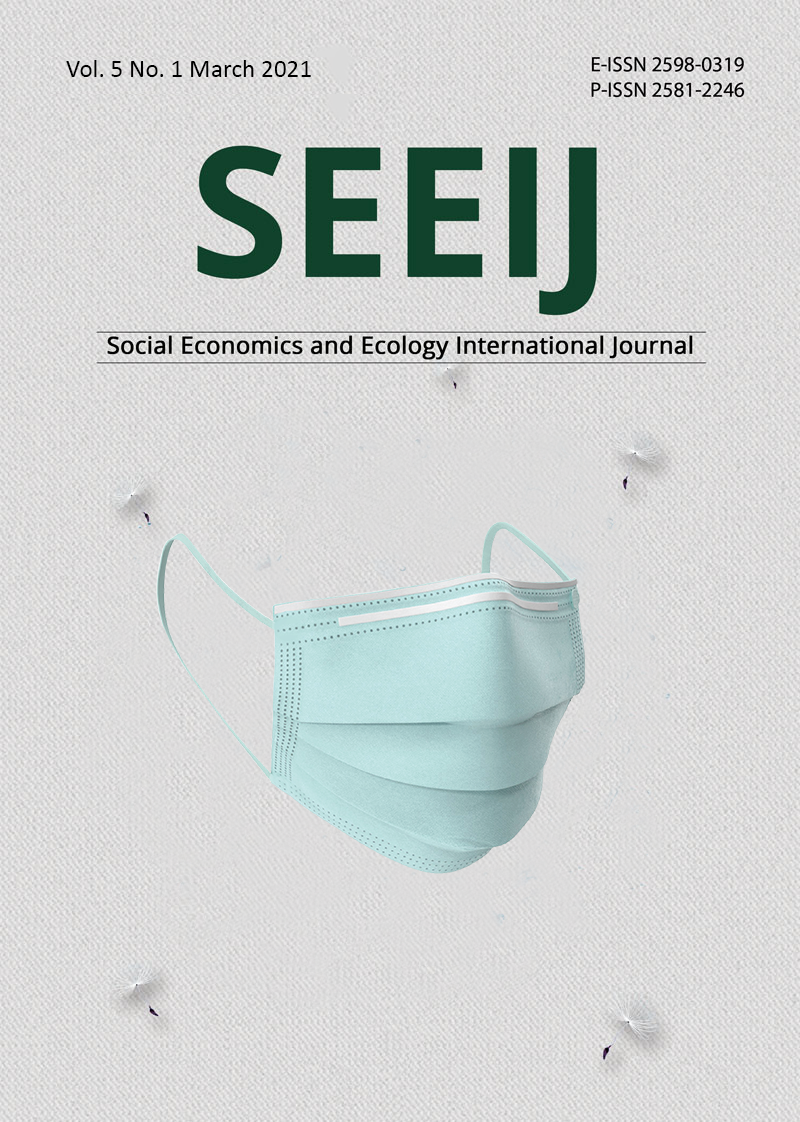Soft Skill Development Strengthening Program Business Entrepreneurship
DOI:
https://doi.org/10.21512/seeij.v5i1.7371Keywords:
genetic intelligence, soft skill, experiental learning, STIFIn ConceptAbstract
The program to strengthen the concept of genetic intelligence as a concept to improve student soft skills was chosen as one of the concepts and methods to be used for student entrepreneurial development using the experiential learning model. Experiential learning approach is a learning approach where knowledge is constructed through experience transformation. In the concept of genetic intelligence or familiar with the term STIFIn Concept, there are 5 parts of the brain, namely Sensing, Thinking, Intuiting, Feeling and Instinct. The brain turns out to have different parts and chemistry. The results of the STIFIn Concept analysis are knowing the dominance of a person's right or left brain, so that it can be the basis for choosing the right field of entrepreneurship, business partners and business mentors according to their genetic intelligence.
References
Darmanto, Susetyo and Wahyudi, Sugeng, 2020.. Developing Intention and Entrepreneurial Behavior Through the Mediating Role of Entrepreneurial Self Efficacy Maturity (An Empirical Study on University Students in Semarang, Indonesia) (February 13, 2014). Available at SSRN: https://ssrn.com/abstract=2395090 or http://dx.doi.org/10.2139/ssrn.2395090. Retrieved on July 01, 2020
Era Genetik , Yayasan Qurrotu A’yun, Bekasi, Cetakan kedua : Desember 2017, ISBN 978-602-61342-0-2
Farid Poniman, Sang Penemu Konsep STIFIn, https://www.donita.co.id/farid-poniman-stifin/ Diakses tanggal 5 April 2018
Gunawan, Sasongko 2017, Laporan Akhir Hibah Penguatan kelembagaan Inkubator 2017
Indarti, Nurul et al. 2010. Underlying Factors of Entrepreneurial Intentions among Asian Students. The South East Asian Journal of Management, Volume IV, No.2. October 2010.
Indarti, Nurul; and Rostiani, Rokhima. 2008. Intensi Kewirausahaan Mahasiswa: Studi Perbandingan antara Indonesia, Jepang dan Norwegia. Jurnal Ekonomika dan Bisnis Indonesia, Vol. 23, No. 4, Oktober 2008. http://modul.repo.mercubuana-yogya.ac.id/modul/files/openjournal/Journall/physicology/indarti-rostiani-jebi-2008.pdf. Retrieved on July 01, 2020.
Osterwalder, A., & Pigneur, Y. (2010). Business model generation: a handbook for visionaries, game changers, and challengers. John Wiley & Sons.
Panca Rona, Yayasan STIFIn,Bekasi, Farid Poniman, Cetakan kedua : Februari 2018
Sasongko H Agung, 2017 Proposal Program Penguatan Kelembagaan Inkubator Bisnis Teknologi.
Setiadi, N.J. et al. 2007b. The impact of personal characteristics and intrinsic motivation on creative behavior among Indonesian radio station managers. The South East Asian Journal of Management, 1(1), 105-119, 2007b.
Setiadi, Nugroho J; and Puspitasari, Monica. 2014. Empirical Study of Entrepreneurial Attitudes and Intentions among Indonesian Business Students. DLSL Journal of Management, Volume 1 Issue 1, January 2014. ISSN 2350-7802. https://www.researchgate.net/profile/Nugroho_Setiadi/publication/260021511_Empirical_study_of_entrepreneurial_attitudes_and_intentions_among_Indonesian_business_students/links/0deec52f1ad3aadfa2000000.pdf. Retrieved on July 01, 2020.
Downloads
Published
How to Cite
Issue
Section
License

This work is licensed under a Creative Commons Attribution-NonCommercial 4.0 International License.
The Authors submitting a manuscript do so on the understanding that if accepted for publication, copyright of the article shall be assigned to SEEIJ Community Empowerment (CE) Bina Nusantara University as publisher of the journal.
Copyright encompasses exclusive rights to reproduce and deliver the article in all form and media, including reprints, photographs, microfilms and any other similar reproductions, as well as translations. The reproduction of any part of this journal, its storage in databases and its transmission by any form or media, such as electronic, electrostatic and mechanical copies, photocopies, recordings, magnetic media, etc., will be allowed only with a written permission from SEEIJ Community Empwerment (CE) Bina Nusantara University.
SEEIJ, the Editors and the reviewer make every effort to ensure that no wrong or misleading data, opinions or statements be published in the journal. In any way, the contents of the articles and advertisements published in the SEEIJ are sole and exclusive responsibility of their respective authors and advertisers.

This work is licensed under a Creative Commons Attribution-NonCommercial 4.0 International License.









